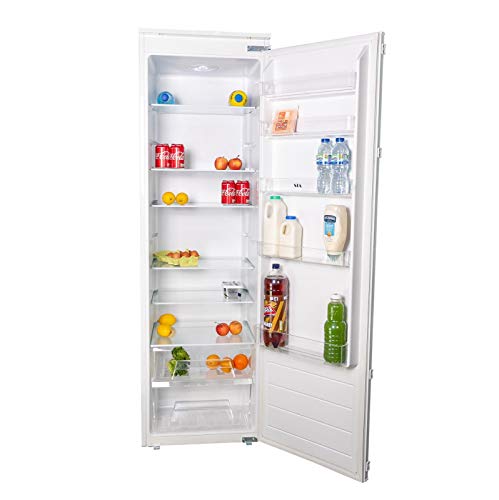How to Keep Your Fridge Running Smoothly
Fridges come in a wide range of shapes and sizes. They can fit in tight places like dorms.
Some models can also connect to smart devices. They let you monitor your fridge remotely and fix any issues that might occur. You can also control them using voice commands.
Noise
Refrigerators can produce various sounds when operating, and some are more obvious than others. If you notice any of the sounds below, determine its origin and search for a quick fix prior to calling a repair service for your fridge.
Rattling

The fridge could rattle when there's not enough space between it and the wall or cabinet or if it is positioned at an unlevel angle. It's easy to solve. You just need to make sure there are at least two inches between the fridge and wall or cabinet, or you can adjust the leveling legs or screws to increase or decrease the height of your fridge.
Hissing
When the compressor is cooling your food, it may produce a loud sound. This is a typical sound that is caused by refrigerant or compressor fluid that is moving through the system. If you're worried, count how often the compressor cycles and call a fridge repair service immediately in the event that it occurs more frequently than usual.
Squeaking
Fridges can be noisy if the coils or fan are filthy. If you hear a loud squeaking sound from your fridge, use a vacuum cleaner brush attachment along with a rag and water or dish soap and warm water to clean the coils and fan. It is essential to do this at least twice a year or more frequently in the case of a fridge that is older or used heavily.
Clicking
A clicking sound can be heard from a refrigerator. It is usually due to freezing around the fan of the freezer. under counter fridge silver can be resolved by a manual defrost but will likely return until the issue is resolved by a professional service.
Clicking can also happen when the fridge is turned off, so make sure to restart it in the event that this happens. If you have an ice maker installed to your fridge, this sound could be caused by it. Make sure to switch it off when you are not making use of ice frequently.
The hum from your fridge is normal, and it can be a bit louder at certain times of the day or after large stockings or intensive freezing operations. The refrigerator is working harder to keep your food cool, and therefore it will work more quickly. This isn't an indication of a problem.
Dust
Dust in the house attracts dirt, bacteria and other microorganisms, as well as traces of the everyday exposure to chemicals in our homes. The tiny particles can be breathed in and trigger allergic reactions and can provide a great environment for microbes to thrive including those that could cause infections when they come into contact with wounds that are open.
Cleaning a refrigerator is impossible, but regular cleaning can help to reduce dust and ensure the temperature at a constant level. A dirty fridge also wastes energy because it overheats and is inefficient. If you suspect that your fridge is making louder noises than usual, or if it's wasting power by overworking itself is it time to call in the professionals.
Contrary to other airborne particles dust doesn't just come in from the outside, as is commonly believed. It contains resuspended dirt from your home which could be contaminated by lead or other toxic substances. It also contains mold, pollen and car exhaust. It also has legacy pollutants such as DDT that were banned a century ago.
Some compounds, such as flame retardants such as decabromodiphenylether can be dissolved and released into the air, but the majority of chemicals in house dust are transferred directly from one object to another, such as by people smashing fibers and small pieces of plastic off electronic equipment. High-molecular-weight substances, such as surfactants used in cleaners and paint strippers, also migrate directly into dust.
A dusty refrigerator can negatively affect your health, in addition to contaminating food. It can harbor allergens like pet dander and cockroach droppings that can trigger asthma attacks and allergies. It also contains bacterial spores, such as staphylococcus aureus, which can cause infections if they find their way into a wound.
Researchers have discovered that a range of health conditions can be traced to dust pollution, ranging from heart disease to cancer to leukemia and inflammatory intestinal disease. A recent study revealed that the homes of children with leukemia tended to have higher levels of polycyclic aromatic hydrocarbons, the PBDEs, and PCBs in their dust than the homes of healthy kids.
Condenser Coils
If refrigerators are functioning properly, the coils on the back and front of the appliance should be able to dissipate the heat generated by the compressor. But if these radiator-like parts are covered in pet hair, dust, or lint, the compressor works all day long trying to cool the fridge but ends up wearing down the unit. It is essential to keep your coils clean.
If you're planning to do the work yourself, it is recommended that you unplug the refrigerator from its outlet and turn off its power supply prior to starting. This will decrease the chance that you or your family members may be struck by electricity while working on the appliance. It is also a good idea to wear a mask if are sensitive to dust. You will then need to locate the coils. The coils are typically located in the back of the refrigerator, or in certain cases, on the front and at the base. If you're not sure where to find them check the owner's manual or contact the manufacturer for more information.
Once you've located the coils, you will have to take off the access panel, if there's one. Then, alternate between vacuuming the coils using an hose attachment that is narrow and then brushing them with a condenser brush to clean the coils. It is important to be patient when doing this to avoid bending or damaging the coils. Replace the kick panel, or move the refrigerator to its the correct position, and then connect it to the electrical outlet.
If you're not comfortable doing it yourself, you could always seek out an expert. It's cheaper and easier to maintain the cleaning routine to avoid the issue.
Maintenance
Fridges are powerful appliances that run throughout the day to cool your food. They need regular maintenance to ensure they do their job effectively. This simple preventive maintenance will keep them running smoothly for years to come.
Clean the door seals. Gaskets can get filled with jelly and other sticky foods which allows air to escape through tiny holes. Clean them with a solution of baking soda and warm water on a toothbrush or sponge every couple of months.
Another spot to check for issues is the fan at the back of the fridge. It can be noisy if it's blocked by paper, insulation or even mice (gasp). Unplug the fridge remove all the shelves and take out any removable parts. Vacuum cleaners with connections for hoses are a great option to clean the coils and the area surrounding them. Make sure to turn the fridge on again after you have finished.
It is recommended to check your owner's guide for information about where to locate the coils, the fan, and the tools for cleaning you might require. Also, you should go through the warranty to make sure you know what's covered.
